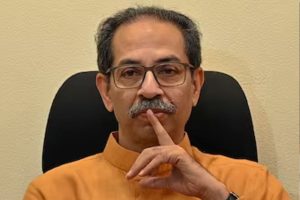Experts have stressed the importance of preserving Ladakh’s high-altitude animal genetic resources, its unique livestock and the indigenous cows and yaks.
The meeting organised by the Indian Council of Agricultural Research (ICAR) in Leh focused on preservation and promotion of Ladakh’s unique livestock and animal genetic resources.
Advertisement
The Chairman-CEC of Ladakh Autonomous Hill Development Council (LAHDC) Tashi Gyalson chaired the meeting.
Tashi Namgyal Yakzee, Executive Councillor Animal Husbandry and Dr. Raghavendra Bhatta, Deputy Director (Animal Science) ICAR were present.
The meet brought together herders, scientists, government officials, and stakeholders to discuss strategies for the characterization, registration, and value addition of these high-altitude breeds, while also exploring sustainable agricultural practices for the region.
The meeting was also attended by Dr. OP Chaurasia, Director of Defence Research and Development Organisation (DRDO), Defence Institute of High Altitude Research (DIHAR), Dr. Manishi Mukesh, Principal Scientist at ICAR; Dr. BP Mishra, Director of ICAR-National Bureau of Animal Genetic Resources; along with the heads of the Leh Animal and Sheep Departments, team of doctors and scholars who visited from outside and local herders among others present.
Dr. BP Mishra, in his keynote presentation, discussed the importance of preserving Ladakh’s high-altitude animal breeds, including the region’s indigenous cow and yak. He emphasized the role these animals play in maintaining biodiversity and building climate resilience, underlining their potential to contribute to India’s national efforts to protect indigenous livestock.
Dr. Manishi Mukesh, Principal Scientist at ICAR, presented the unique attributes of Ladakhi cow and yak milk, which are rich in omega-3 fatty acids and have demonstrated anti-cancer properties. Mukesh emphasized the value addition opportunities within the dairy sector, particularly the production of high-quality yak butter and cheese, which could gain greater recognition and market value with proper branding and a Geographical Indication (GI) tag.
Dr. Raghavendra Bhatta, Deputy Director General (Animal Science) at ICAR, reflected on the journey of promoting Ladakh’s livestock sector. He spoke about the importance of preserving the region’s indigenous breeds, free from pesticides and other chemicals, and stressed the need to avoid crossbreeding.
The event included the felicitation of local herders and livestock keepers, who received certificates of appreciation for their tireless efforts in preserving Ladakh’s unique livestock heritage.
A significant moment during the event was the submission of a GI application for “Ladakhi Cattle Churpi,” a local dairy product, to the Animal Husbandry Department of Ladakh. The GI tag will help protect the authenticity of these products and enhance their marketability, ensuring that Ladakh’s livestock and dairy offerings are recognized for their uniqueness.
Another highlight of the meeting was the release of a comprehensive documentation and publication on Animal Genetic Resources (ANGR) in Ladakh. This initiative marks a significant step towards preserving the region’s unique livestock breeds and their genetic resources.
Additionally, the ICAR to established a dedicated centre, aimed at facilitating farmer training, exposure programs, and providing technical support to local herders. Starting next year, the center will also focus on improving livestock feed and providing better animal shelter facilities, further supporting the sustainable development of Ladakh’s pastoral economy.
As a gesture of appreciation, Dr. Raghavendra Bhatta presented a memento to CEC Tashi Gyalson and Executive Councillor Tashi Namgyal Yakzee for their contributions and leadership in promoting Ladakh’s unique livestock heritage. This collaborative effort is expected to foster long-term growth and resilience for Ladakh’s agricultural sector, enhancing its self-sustainability and organic farming initiatives in line with the vision of the Government of India.
Highlighting Prime Minister Modi’s vision for making Ladakh self-sustainable and organic, the CEC reaffirmed that the Council has been committed to this goal since Ladakh became a Union Territory, and continues to work toward it with dedication and focus.
Executive counsellor Tashi Namgyal Yakzee, emphasized the significant contributions of Ladakhi herders and pastoralists. He highlighted the steady increase in the yak population in recent years, noting the growing importance of these animals to the region’s economy and ecosystem.











